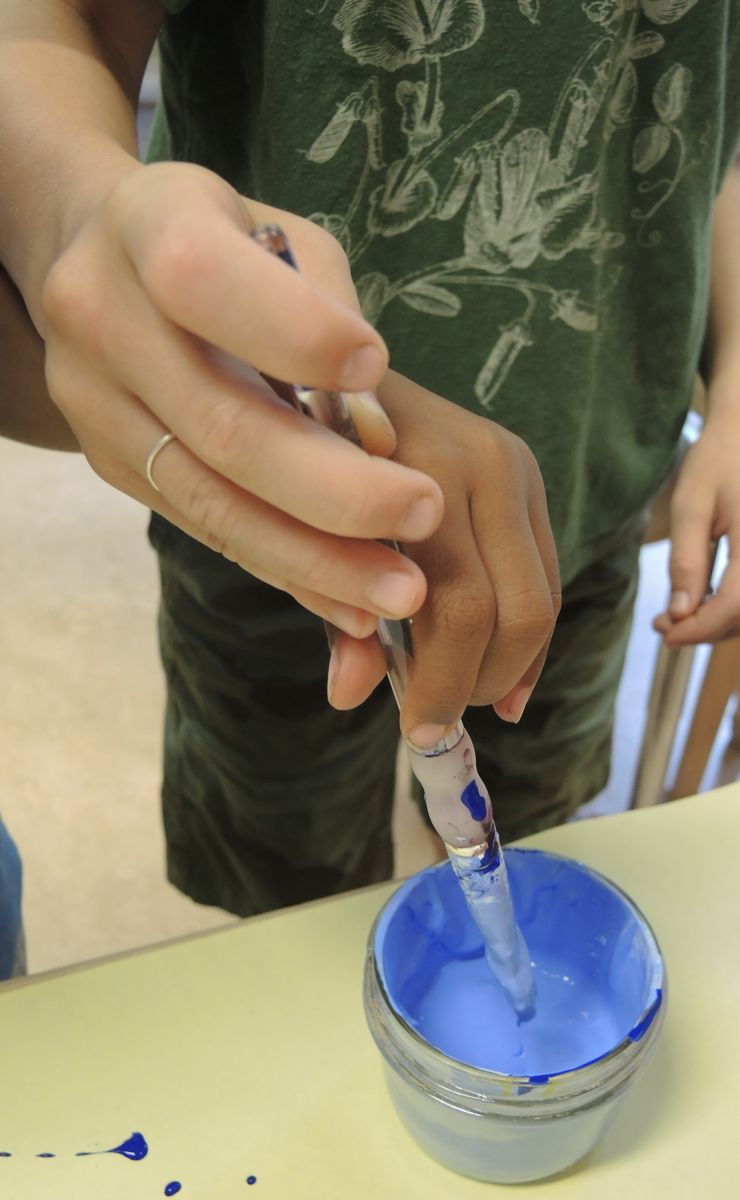Who did you collaborate with today?

Working with a partner is sometimes easier because you have lots of ideas,
but it’s sometimes harder because you have to agree.
Angelina, age 8
Angelina spoke these words recently as she and her classmates at Opal School were getting ready to launch their final writing project of the school year. These third graders were going to write this one with a partner.
From the teacher’s point of view, this could be risky. What if one child does all the work? How will I assess each child’s skills? Won’t the inevitable conflict waste valuable time that is better spent building writing skills that align to the Common Core?
But what if, in this writing project, the expectation to write was intended to create a genuine context to develop and reflect on the skill set that supports collaboration? What if collaboration was the end and writing the means, and not the other way around? Are there trade-offs to make? Are they worth it?
Recently, I was at a meeting attended entirely by people over the age of 35. The topic of conversation was (generally) about the group’s inability to come up with an effective process for working together on new projects. One participant said, “Well, I think this just isn’t working because we get together to share our ideas all the time and nothing ever changes. We’ve tried collaborating and it just doesn’t work.”
Back in my meetings with the group where I am outnumbered 16:1 by people under the age of 10, there was a decidedly different tone.
Here is Zane, age 8, reflecting on an experience with collaboration: “I know I can’t make everybody happy but I can be flexible and make compromises so everyone can be a little bit happy.”
And Pritam, age 9, reflecting on her experience: “At first my partner had one idea and I had one idea, so [our teacher] suggested we look for inspiration, and we found a new idea. In the end I liked our new idea more than our original ideas.”
Ultimately, collaboration is an exercise– a practice– in reframing problems and engaging with the world as an innovator, a thinker, a scientist, an artist.
Here is Devin reflecting on a collaborative drawing with his partner, Camille, both age 9: “I thought up one image but Camille didn’t really agree so we went deeper and I asked her what she would like. She added the swirly things which made me think of the fountain of youth, and then we said, ‘What if it was just a fountain?’”
These reflections from the children make me think that my adult colleagues have forgotten something critical: that collaboration is always an option. It always exists as a possibility. But only when all the players are willing and able to imagine that the process of collaboration itself is more valuable than being the one with the best idea. Only if all the players understand that in order to be right, everyone else doesn’t have to be wrong. Only if they can commit to going deeper when they hit disagreement—because disagreement will be a given.
But, it’s important to recognize that all this takes a tremendous amount of practice. So maybe it’s not that it was forgotten. Maybe it’s that it was never learned. I think it’s possible that my adult colleagues in attendance at that meeting are competent writers who learned to be by practicing endlessly at school. But good writing alone isn’t moving our work forward. Doing anything alone limits our ability not only to perceive new paths, but to arrive at entirely new destinations.
In her new book, The Rise, Sarah Lewis writes, “Reframing can turn an artist’s studio into a laboratory, combining things never before considered.” She interviews author James Watson on this topic and quotes him as saying, “Fields die just because no one thinks they can outdo what has been done.”
How can our classrooms be studios and laboratories where we foster this value of recombination, reflection, and reframing? How can we improve the capacity of our organizations by supporting individuals to grow up believing that the goal is not to outdo, but just to do? And that doing together allows us to get more done. Together.
Who did you collaborate with today?
